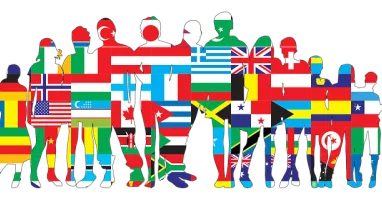The Master's Degree Program in Nursing and Midwifery Sciences has a restricted access.






Publication Notice of Admission
Registration for the Admission Test
Admission test
Publication of rankings
The Master's Degree Program in Nursing and Midwifery Sciences has a restricted access in order to ensure the quality of the educational offerings in relation to available resources. The number of students admitted is determined on the basis of national planning and the availability of teaching staff, teaching facilities (classrooms, laboratories) and care facilities that can be used for the conduct of practical activities in the department.
There is an admission test and therefore selection is based on the outcome of the test. The test consists of multiple-choice questions covering subject areas and topics defined annually by specific ministerial decree and will be taken on the date to be indicated in the announcement.
Pursuant to the regulation in force, those who hold one of the following qualifications are admitted to the test:
- university degree qualifying for the practice of one of the health professions included in the master's degree class of interest (LM/SNT1);
- university degree entitling the holder to practice one of the health professions included in the Master's degree class of interest (LM/SNT1);
- qualification for the practice of one of the health professions included in the master's degree class of interest (LM/SNT1), referred to in Law no. 42/1999.
In accordance with D. Lgs. 81/08 and subsequent amendments and additions, each student will undergo an assessment of psychophysical fitness to carry out the activity of the specific professional profile. The assessment of permanent unfitness will result in forfeiture of the student's status in the Degree Course.
Pursuant to Law No. 33 of April 12, 2022, simultaneous enrollment in two higher education courses at the same University or at different Universities or Institutions of Higher Education in Art and Music (including foreign) is permitted. This issue is regulated by Article 31 of the University Teaching Regulation.
To acquire advanced cultural and professional training to intervene with high competence in care, management, training and research processes within the health profession of nursing, pediatric nursing and midwifery.
To be able to take into account, in the staff planning and management in the health care area, both the needs of the community and the development of new methods of work organization, as well as technological and information technology organization, including with reference to forms of telehealth or tele-education, and the planning and organization of pedagogical-training interventions as well as the homogenization of operational standards to those of the European Union.
To develop an integrated approach to the organizational and management problems of the health professions, qualified by mastery of the techniques and procedures of health management and also be able to intervene in the training and research processes peculiar to their fields.
Throughout the training proper to the individual professions, resources acquire the ability to:
- analyze the health problems of a community and the responses of health and social welfare services to the main needs of citizens;
- learn the knowledge necessary for understanding biological phenomena, the main mechanisms of functioning of organs and apparatuses, knowledge about heredity and physiological phenomena, also in correlation with psychological, social and environmental dimensions of disease;
- understand the fundamentals of pathophysiology applicable to different clinical situations, including in relation to diagnostic parameters;
- identify the care needs of the person and the community and formulate related goals;
- learn the basic cultural and professional principles that guide process, conceptuality, diagnostic thinking, and acting towards the person being cared for and the community, beginning to apply these principles in experiences at accredited health and welfare facilities;
- plan, deliver, and evaluate care for healthy and sick people, both in the hospital and in the community, promoting health-positive lifestyles and adopting systems of care geared toward self-management and self-care;
- implement planned care interventions and ensure the application of diagnostic-therapeutic prescriptions, in accordance with scientific principles by adapting them to the person assisted, in relation to different priority health problems and in different operational areas.
For further specifics regarding the educational objectives of the Course, please read the Teaching Regulation on the home page.
The master's degree graduate is able to perform management activities in health care facilities, public or private (organization/supervision of facilities and service delivery with a view to efficiency and effectiveness), university teaching, continuing education, research, in a dependent or freelance capacity.
Please consult the Italian course page.
